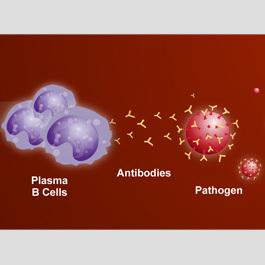
Suppressed Immune System
Your immune system helps your body tell the difference between its own healthy cells and abnormal or foreign cells, and organisms that can threaten your body. The immune system is constantly checking the cells in the body for foreign proteins that allow it to detect and destroy bacteria, fungi, and viruses.
Similarly, the immune system also checks our cells to make certain that they are not presenting proteins that are suspicious for cancer. If they do find cells that are presenting inappropriate proteins, they assume they are cancer and destroy them. This process of checking cells is called immunosurveillance.
The immune system can be weakened or suppressed by certain cancers, UV radiation, special drugs for organ transplants, and the human immunodeficiency virus (HIV) that causes AIDS. When the immune system is not functioning properly, we are at risk to develop cancer as well as infections.
Scientists have found that people who are on immunosuppressant medications for an organ transplant are much more likely to develop basal and squamous cell cancers. In some studies, the risk is 20 to 60 times greater than in the general population.1
The risk for melanoma in immunosuppressed individuals is less clear. Some studies have found that the rate is 6 times that of the general population.1 However, other studies found a threefold increase.2 Still another study did not find a statistically significant difference.3 One likely reason for the differences among these studies is that melanoma occurs less frequently than the other skin cancers, and few studies have followed patients long enough to determine the full effect of immunosuppression on melanoma.
Although HIV suppresses the immune system, it is not clear that being HIV-positive puts someone at a higher risk for developing melanoma.4,5 Nevertheless, there is some suspicion that HIV increases the risk of melanoma, along with the risk of basal cell carcinoma and squamous cell carcinoma.